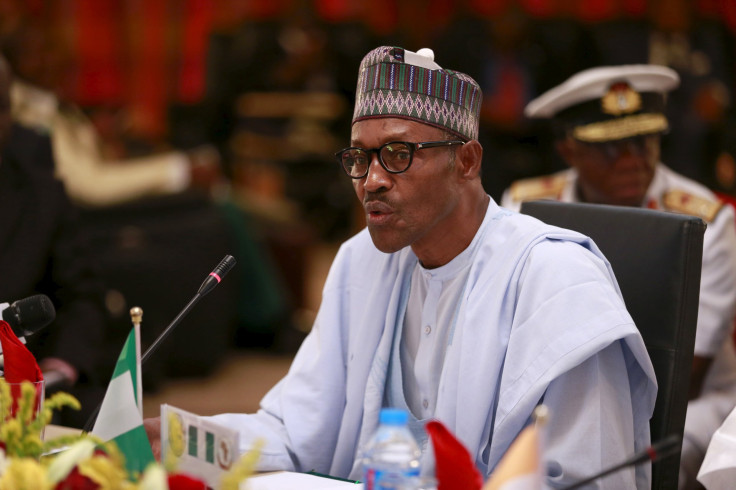Boko Haram Killed 800 Nigerians In Buhari's First 100 Days As President: Report

During Nigerian President Muhammadu Buhari's first 100 days in office, an estimated 800 citizens were killed by the extremist group Boko Haram, according to Buharimeter, a platform run by the Centre for Democracy and Development that tracks progress on electoral promises made by the president. While campaigning for the presidency, the former general said he would crack down on the extremist group, making the fight against Boko Haram a top priority.
Despite some 800 Nigerians dying at the hands of Boko Haram, the president has kept his promise to fight the insurgent group, the Buharimeter report largely found. "After 100 days in office, President Muhammad Buhari, in keeping with his campaign promises, has [prioritized] resolving the Boko Haram insurgency in northeast Nigeria," the report reads.
It went on to praise some of the tactics Buhari has employed, including a restructuring of "counter terrorism architecture," forging international relationships in order to gain assistance in the fight and the recapturing of the towns of Dikwa and Gamboru Ngala from the insurgent group. The report goes on to note that despite some successes, there have been notable failures.
"However, in the last 100 days, there have been over 30 successful attacks and bomb explosions which claimed lives of over 800 people," the report reads. As recently as last week, 26 people were killed in the country's northeastern state of Borno by attackers believed to be members of the Islamic extremist group, according to the Globe and Mail.
The reaction to the first 100 days under Buhari, who was inaugurated May 29, has been mixed. The president has taken significant measures against Boko Haram's six-year insurgency and fought Nigeria's corruption but has struggled to boost the West African nation's economy. He has yet to appoint a cabinet or provide a detailed economic plan, and the country's currency -- the naira -- has fallen 15 percent over the last year as federal revenues shrunk 30 percent.
"This has been viewed in a disappointing light, as the president was expected to be a more decisive leader than his predecessor," Ronak Gopaldas, a sovereign risk analyst at South Africa's Rand Merchant Bank, told AFP last week. "As a president who campaigned on a message of change, especially security and corruption, the big elephant in the room remains the economy, and clarity in this regard is sorely lacking.”
© Copyright IBTimes 2024. All rights reserved.












